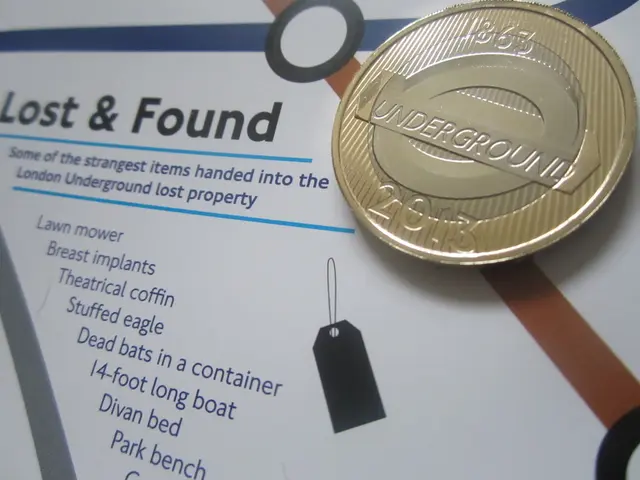Google Introduces Ad Policy to Combat German Underground Market Trade
Updated Google Policy on Gambling Ads: Shifting the Advertising Landscape
Embracing Regulatory Compliance
Google is stepping up its game in combating illegal gambling ads in Germany. The tech giant has revamped its gambling and games policy, demanding that only operators and affiliates certified by the Glücksspielkollegium (GGL) can now apply for certification to advertise gambling-related activities. This move aligns with the nation's stringent gambling regulations, reflecting a growing trend of digital platforms intensifying controls over gambling content.
In Line with German Law
Google's updated policy underscores its commitment to upholding the law. The heavily regulated German gambling market aims to protect consumers and maintain public order. This means operators are to demonstrate compliance with local laws before advertising on Google, marking a shift in marketing tactics for many companies.
Covering the Gamut of Gambling Content
Google's policy targets a wide array of gambling-related content, including online casinos, sports betting, and other digital formats that don't meet Germany's regulatory standards. Strict criteria for advertisements help limit exposure to ads that may promote detrimental gambling practices.
Protecting Consumers First
One crucial aspect of this policy update is prioritizing consumer protection. Google seeks to protect users from potentially dangerous or illicit gambling content – part of a broader endeavor within tech industries to create safer online spaces.
Blending Technological and Human Enforcement
To enforce the rules effectively, Google will combine cutting-edge technology with human review processes. These measures help detect and penalize policy violations, ensuring that gambling ads maintain high quality and legality.
Gambling Industry's New Reality
For Germany's gambling industry, the updated policy could have far-reaching impacts. Operators who fail to obtain GGL certification may face decreased visibility, especially in the case of smaller or newer entities. This shift could reshape market dynamics and favor larger, more established companies better at navigating the certification landscape.
Balancing Act
Google's policy change highlights the persistent legal and ethical challenges faced by tech companies. While platforms increasingly act as content and advertising gatekeepers, their responsibilities multiply. The policy update represents a contribution to ongoing discussions about the ethical obligations of tech companies to combat illegal activities online without undermining the interests of legitimate businesses and advertisers.
What's Next
As this policy unfolds, stakeholders keep a close eye on further adjustments to the regulatory framework governing digital advertising. The ongoing evolution of technology and legal standards illustrates the need for companies like Google to stay nimble and adaptable in refining their policies.
In summary, Google's updated gambling advertisement policy in Germany signals a substantial shift in digital advertising. By requiring GGL certification for gambling advertisers, Google aligns its actions with German law and demonstrates its dedication to responsible advertising and consumer protection. This decision plays a significant role in the ongoing mission to safeguard that digital gambling complies with rigorous legal and ethical standards.
- Google is revamping its gambling policy to enforce that only GGL (Glücksspielkollegium) certified operators and affiliates can now advertise gambling-related activities on Google, reflecting Germany's strict gambling regulations.
- Google's policy covers a broad range of gambling content, including online casinos, sports betting, and other digital formats that don't abide by Germany's regulatory standards.
- To protect consumers, Google is prioritizing the detection and removal of potentially harmful or illicit gambling content, which is part of a broader initiative within tech industries to create safer online spaces.
- Google plans to blend technological advancements with human review processes to effectively enforce the new policy, ensuring high-quality and legal gambling ads.
- As the policy unfolds, there may be significant consequences for Germany's gambling industry as smaller or newer operators who fail to secure GGL certification could face decreased visibility and reshaped market dynamics in favor of larger, more established companies.








